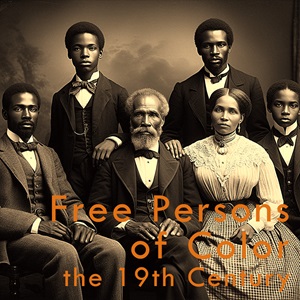 Enslavement
Enslavementto freedom


Vibrant Black communities arise
from the ashes of slavery
Study Areas
"Ex-Slave, Once City Patrolman, is Dead at 89"
From the Harrisburg Telegraph, August 6, 1927
Afrolumens is grateful to David W. Houseal, local historian, for the submission of the following old newspaper clipping from his files. Mr. Houseal is a firefighter with the Harrisburg City Bureau of Fire, and actively collects items relating to and researches the history of firefighting in Harrisburg and Central Pennsylvania.
 William C. ("Uncle Bill") Williams, 89, born a slave on a Virginia plantation, whom the fortunes of war brought north to this city during the retreat of General Banks in the Civil War, died yesterday afternoon after a long illness at his home at 1332 Williams street.
William C. ("Uncle Bill") Williams, 89, born a slave on a Virginia plantation, whom the fortunes of war brought north to this city during the retreat of General Banks in the Civil War, died yesterday afternoon after a long illness at his home at 1332 Williams street.
"Uncle Bill" was a giant Negro standing six feet one and weighing over 350 pounds. In his boyhood he knew the crooning of the old plantation melodies as the slaves gathered around the outbuildings in the evening.
On Virginia Plantation
As a chattel of Colonel Joseph H. Hoerner on a plantation in Fauquier county, Virginia, Uncle Bill made his way about the estate pulling up post fences for the master and doing stone mason work.
Named Policeman
With his freedom, the former slave became a hod carrier in this city until he was appointed as the first Negro city policeman by Mayor Cameron Wilson.1 He later became chief contractor in unloading coal boats that plied up the old canal from Steelton as far up as the State Hospital.
Janitor at Calder School
His last employment was as janitor of the Calder school, from which position he resigned seven years ago because of failing eyesight.
Fifty years ago 'Uncle Bill' helped the late Daniel H. Potter found the Zion Primitive Baptist Church, in Marion street, where he was treasurer and one of the deacons until his death. He was also a member of G .U. O. of O. F., NO. 896.2
Widow Survives
His survivors are his widow, Mrs. Eliza Williams, three sons, Newton, of Pittsburgh; Clarence and Robert, city; two daughters, Mrs. Lillie Crummel, and Mrs. (?Eli)za Alexander, also of this city.
Son Ball Player
Clarence, the eldest son, who is popularly known as "Waxey," played baseball in the early nineties as a catcher with the Cuban Giants and the Philadelphia Giants. He served one season with the Harrisburg Ponies as catcher when they played on the old Sixth street grounds.
Funeral services for "Uncle Bill" Williams will be held Monday afternoon at 1:30 o'clock from Zion Primitive Baptist Church, the Rev. Alexander Robinson and the Rev. Walker Tolliver officiating. Burial will be in Lincoln Cemetery.
Notes
1. Mayor Simon Cameron Wilson served from 1883-1886.
2. Grand United Order of Odd Fellows. This was the African American division of the Odd Fellows organization. Brotherly Love Lodge number 896 met in a building on Briggs Street at the corner with Cowden Street.
Further Reading
Read about the Negro Baseball Leagues in Harrisburg
Interesting fact:
Boyd's Directory of Harrisburg, 1894, lists Clarence H. Williams as a "ball player" living at 335 Calder Street. In 1897 he is listed as living at 1328 Fulton Street, still playing ball.